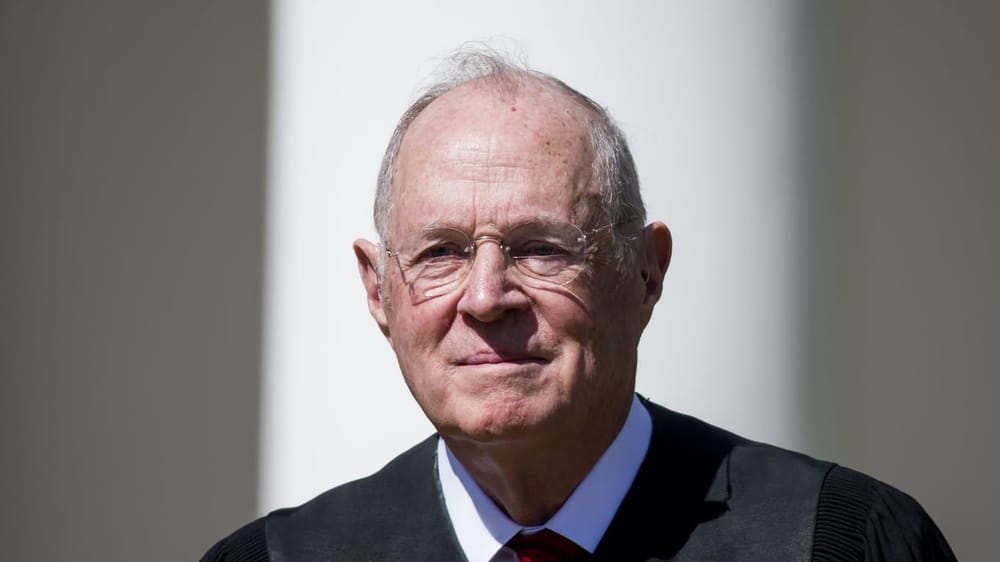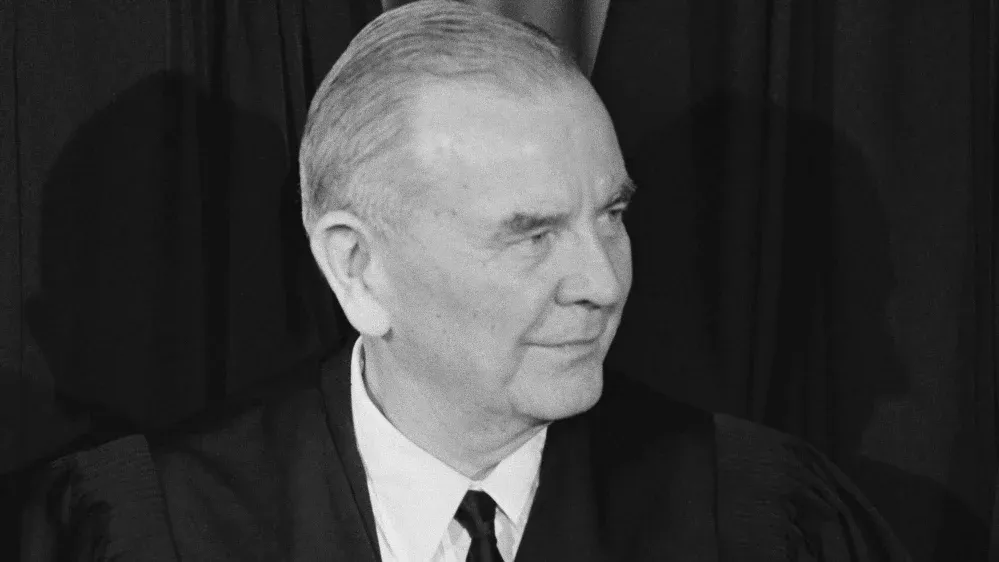In the intricate tapestry of American constitutional law, few figures have left as profound an imprint as Justice Anthony M. Kennedy. Appointed to the United States Supreme Court by President Ronald Reagan in 1988, Justice Kennedy's tenure spanned three decades until his retirement in 2018. During this period, he emerged as a pivotal swing vote, often casting the decisive vote in landmark cases that have significantly shaped the legal and social fabric of the nation. His jurisprudence reflects a nuanced understanding of individual liberties and a commitment to upholding constitutional principles, even when it meant challenging established norms.
Justice Kennedy's influence is perhaps most vividly illustrated in his contributions to the advancement of gay rights and the protection of free speech. His opinions in these areas have not only expanded civil liberties but also redefined constitutional interpretation, setting precedents that continue to resonate in contemporary legal discourse. This analysis delves into some of Justice Kennedy's most consequential decisions, examining their impact on American law and society.
Romer v. Evans (1996)
The significance of Romer v. Evans (1995) lies in its affirmation that laws motivated by animus against a particular group violate the Equal Protection Clause. This case set a precedent for subsequent landmark decisions, including Lawrence v. Texas (2002), which struck down sodomy laws, and Obergefell v. Hodges (2014), which recognized same-sex marriage as a constitutional right. Romer v. Evans (1995) is often discussed alongside these cases as part of the broader doctrinal development concerning LGBTQ+ rights and equal protection jurisprudence. It also reflects the Court's willingness to scrutinize laws that appear to be based on prejudice rather than legitimate governmental objectives.
In its decision, the Supreme Court, led by Justice Anthony Kennedy, held that Amendment 2 was unconstitutional. The Court's reasoning was grounded in the principle that a law must bear a rational relationship to a legitimate government purpose. The Court found that Amendment 2 failed this rational basis review because it imposed a broad and undifferentiated disability on a single group, motivated by animosity rather than a legitimate governmental interest. The ruling emphasized that laws singling out a class of citizens for disfavored legal status or general hardships are inconsistent with the constitutional guarantee of equal protection. This decision marked a significant step in the protection of gay rights under the Constitution.
The Supreme Court case Romer v. Evans (1995) addressed the constitutionality of an amendment to the Colorado state constitution, known as Amendment 2, which prohibited any city, town, or county in the state from recognizing homosexuals as a protected class. The legal issue at the heart of the case was whether this amendment violated the Equal Protection Clause of the Fourteenth Amendment. The amendment effectively nullified existing local ordinances that protected individuals from discrimination based on sexual orientation and prevented any future legislative, executive, or judicial action to recognize such protections.
Lawrence v. Texas (2003)
The significance of Lawrence v. Texas (2002) cannot be overstated, as it laid the groundwork for subsequent advancements in LGBTQ rights, including the recognition of same-sex marriage in Obergefell v. Hodges (2014). It also influenced broader privacy jurisprudence by reinforcing the principle that personal decisions relating to marriage, procreation, contraception, family relationships, child rearing, and education are fundamental liberties protected by the Constitution. Related cases such as Roe v. Wade (1972) and Planned Parenthood Of Southeastern Pennsylvania Et Al v. Robert P Casey Et Al Etc (1991) were part of this evolving doctrinal landscape, as they similarly addressed issues of personal autonomy and privacy. Lawrence v. Texas (2002) thus represents a critical juncture in the ongoing development of constitutional protections for individual liberty and equality.
In a landmark decision, the Supreme Court, by a 6-3 majority, struck down the Texas statute, thereby invalidating similar laws across the United States. Justice Anthony Kennedy, writing for the majority, articulated that the liberty protected by the Due Process Clause extends to intimate choices central to personal dignity and autonomy, including sexual conduct. The Court overruled its previous decision in Bowers v. Hardwick (1985), which had upheld a similar Georgia statute, by emphasizing that Bowers had failed to appreciate the extent of liberty at stake. The Court's reasoning underscored that moral disapproval alone is not a sufficient justification for infringing on personal freedoms, marking a significant shift towards recognizing and protecting individual rights against state intrusion.
The Supreme Court case of Lawrence v. Texas (2002) stands as a pivotal moment in the evolution of constitutional privacy rights and the decriminalization of consensual same-sex conduct. The case arose when John Lawrence and Tyron Garner were arrested in Texas under a state law that criminalized homosexual sodomy. The legal issue at the heart of the case was whether the Texas statute violated the Due Process Clause of the Fourteenth Amendment. The Court was tasked with determining whether the Constitution protected the right of consenting adults to engage in private sexual conduct without government intervention.
United States v. Windsor (2012)
The significance of United States v. Windsor (2012) lies in its role as a precursor to the landmark decision in Obergefell v. Hodges (2014), which legalized same-sex marriage nationwide. Windsor's emphasis on dignity and equality laid the groundwork for Obergefell's broader recognition of marriage rights. Additionally, Windsor influenced subsequent cases concerning equal protection and LGBTQ+ rights, such as Bostock v. Clayton County Georgia (2019), which extended Title VII protections to include sexual orientation and gender identity. The decision also built upon earlier cases like Romer v. Evans (1995) and Lawrence v. Texas (2002), which struck down laws discriminating against LGBTQ+ individuals, further solidifying the jurisprudential trajectory towards greater inclusivity and equality under the law.
The Supreme Court, in a 5-4 decision, held that Section 3 of DOMA was unconstitutional as it violated the principles of equal protection. The majority opinion, delivered by Justice Kennedy, emphasized that DOMA's purpose and effect were to impose a disadvantage and stigma upon those in same-sex marriages, thereby contravening the liberty and equality protected by the Fifth Amendment. The Court reasoned that by denying recognition to same-sex marriages, DOMA sought to injure a class of persons that states sought to protect, thus breaching the constitutional guarantee of equal protection. This decision was pivotal in advancing the rights of same-sex couples and set a precedent for further judicial scrutiny of laws discriminating based on sexual orientation.
The case of United States v. Windsor (2012) addressed the constitutionality of Section 3 of the Defense of Marriage Act (DOMA), which defined marriage for federal purposes as the union between one man and one woman. The legal issue arose when Edith Windsor, the widow of Thea Spyer, was denied a federal estate tax exemption for surviving spouses because their marriage was not recognized under federal law, despite being legally married in Canada and residing in New York, where their marriage was recognized. Windsor challenged the constitutionality of DOMA, arguing that it violated the principles of equal protection as applied to the federal government through the Fifth Amendment.
Obergefell v. Hodges (2015)
The significance of Obergefell v. Hodges (2014) is profound, as it effectively legalized same-sex marriage nationwide, ensuring that all marriages are treated equally under the law. This decision marked a pivotal moment in the expansion of civil rights, aligning with earlier decisions like Romer v. Evans (1995), which invalidated laws discriminating against homosexuals, and United States v. Windsor (2012), which struck down parts of the Defense of Marriage Act. The ruling in Obergefell has had far-reaching implications for subsequent legal interpretations concerning LGBTQ+ rights and has been instrumental in shaping contemporary discussions on equality and civil liberties.
The Court, in a 5-4 decision, held that the right to marry is a fundamental right inherent in the liberty of the person, and under the Due Process and Equal Protection Clauses of the Fourteenth Amendment, couples of the same sex may not be deprived of that right and that liberty. Justice Anthony Kennedy, writing for the majority, emphasized that marriage is a keystone of the nation's social order and that excluding same-sex couples from marriage demeans their dignity. The Court's reasoning drew upon precedents such as Loving v. Virginia (1966), which invalidated bans on interracial marriage, and Lawrence v. Texas (2002), which struck down laws criminalizing homosexual conduct, to underscore the evolving understanding of liberty and equality under the Constitution.
The Supreme Court case Obergefell v. Hodges (2014) stands as a landmark decision in the realm of civil rights, particularly concerning the legality of same-sex marriage across the United States. The case arose from a series of lawsuits filed by same-sex couples challenging the constitutionality of state bans on same-sex marriage and the refusal to recognize such marriages performed in other jurisdictions. The primary legal issue at hand was whether the Fourteenth Amendment requires a state to license a marriage between two people of the same sex and to recognize a marriage between two people of the same sex when their marriage was lawfully licensed and performed out-of-state.
Citizens United v. Federal Election Comn (2009)
The significance of Citizens United v. Federal Election Comn (2009) is profound, as it reshaped the legal framework governing campaign finance and led to the rise of Super PACs, which can raise and spend unlimited amounts of money from corporations, unions, and individuals to influence elections. This decision has sparked ongoing debate about the role of money in politics and its impact on democratic processes. Subsequent cases such as McCutcheon v. Federal Election Commission (2014) further expanded on this ruling by striking down aggregate limits on individual contributions to candidates and political parties. Together, these cases have contributed to a doctrinal shift towards greater protection of political spending as a form of free speech, significantly influencing American electoral politics and jurisprudence.
The Court's reasoning was grounded in the principle that political speech is indispensable to a democracy, which is no less true because the speech comes from a corporation. Justice Kennedy, writing for the majority, emphasized that the government could not suppress political speech on the basis of the speaker's corporate identity. The decision overruled parts of Austin v. Michigan Chamber Of Commerce (1989) and Mitch McConnell United States Senator Et Al v. Federal Election Commission Et Al (2003), which had upheld restrictions on corporate political spending. The Court reasoned that these precedents were inconsistent with the First Amendment's protection of free speech and that the BCRA's provisions amounted to an unconstitutional ban on speech. This decision underscored the notion that the First Amendment does not allow prohibitions of speech based on the identity of the speaker, whether individual or corporate.
The Supreme Court case Citizens United v. Federal Election Comn (2009) represents a landmark decision in the realm of campaign finance law, fundamentally altering the landscape of political spending in the United States. The case arose when Citizens United, a nonprofit corporation, sought to air a film critical of then-presidential candidate Hillary Clinton and to advertise the film during television broadcasts, which was prohibited under the Bipartisan Campaign Reform Act (BCRA). The legal issue at hand was whether the BCRA's restrictions on independent expenditures by corporations and unions violated the First Amendment's free speech clause. The Court, in a 5-4 decision, held that corporate funding of independent political broadcasts in candidate elections cannot be limited under the First Amendment, effectively overturning previous precedents that allowed for such restrictions.
Sorrell v. Ims Health Inc. (2010)
The significance of Sorrell v. Ims Health Inc. (2010) lies in its reinforcement of First Amendment protections for commercial speech, particularly in the context of data and information dissemination. This case has had a profound impact on jurisprudence by affirming that even commercial entities are entitled to robust free speech protections against government-imposed content-based restrictions. It has influenced subsequent cases involving data privacy and commercial speech, such as Reed v. Town Of Gilbert (2014), which further clarified the standards for content-based regulation of speech. Additionally, Sorrells v. United States (1932) has been cited in discussions about the balance between privacy interests and free speech, as seen in cases like Florida Bar v. Went For It Inc. (1994). The decision continues to shape legal discourse on the intersection of technology, data privacy, and free expression.
The Court's reasoning was grounded in the principle that the government cannot restrict expression because of its message, ideas, subject matter, or content. The majority opinion, delivered by Justice Kennedy, emphasized that the Vermont law was subject to heightened scrutiny because it imposed content- and speaker-based restrictions. The Court found that Vermont's justifications for the law—protecting medical privacy and achieving public health goals—were insufficient to justify the burden on free speech. The decision underscored the importance of protecting commercial speech under the First Amendment, aligning with precedents such as Central Hudson Gas And Elec Corp. v. Public Serv Commn Of NY (1979), which established a framework for evaluating restrictions on commercial speech.
The case of Sorrell v. Ims Health Inc. (2010) addressed the constitutionality of a Vermont statute that restricted the sale, disclosure, and use of pharmacy records that revealed the prescribing practices of individual doctors. The legal issue at the heart of this case was whether this statute violated the First Amendment rights of data miners and pharmaceutical companies by imposing content- and speaker-based restrictions on speech. The Supreme Court, in a 6-3 decision, held that the Vermont law did indeed violate the First Amendment. The Court reasoned that the statute imposed a burden on speech because it disfavored specific speakers and specific content, thus necessitating heightened judicial scrutiny.
Janus v. American Federation Of State County And Municipal Employees Council 31 (2018)
The ruling in Janus v. State County And Municipal Employees (2017) has had a profound impact on labor law and First Amendment jurisprudence. It effectively ended the practice of collecting agency fees from non-consenting public sector employees, significantly affecting union funding and operations. This decision aligns with other cases emphasizing robust protections for free speech, such as Citizens United v. Federal Election Comn (2009). It also reflects a broader judicial trend towards scrutinizing compelled speech and association, as seen in West Virginia Bd Of Ed v. Barnette (1942) and National Institute Of Family And Life Advocates v. Becerra (2017). The ruling has prompted ongoing debates about the balance between individual rights and collective bargaining interests in the public sector.
The Court, in a 5-4 decision, ruled in favor of Janus, overturning the precedent set by Abood v. Detroit Bd Of Ed (1976). The majority opinion, authored by Justice Alito, held that requiring non-union members to pay agency fees to public sector unions violates the First Amendment. The Court reasoned that compelling individuals to subsidize union speech on matters of substantial public concern imposes a significant burden on free speech rights. The decision emphasized that the government must demonstrate a compelling interest and use the least restrictive means to achieve it when infringing upon First Amendment rights. The Court found that the interests served by agency fees did not justify such an infringement.
The Supreme Court case Janus v. State County And Municipal Employees (2017) addressed the constitutionality of public sector union fees. The case arose when Mark Janus, a public sector employee in Illinois, challenged the requirement that he pay agency fees to the union representing his workplace, even though he was not a member. Janus argued that this mandatory fee violated his First Amendment rights by compelling him to subsidize speech with which he disagreed. The legal issue centered on whether such mandatory fees, often justified by the need to prevent "free riders" who benefit from union negotiations without contributing financially, infringed upon the free speech rights of non-consenting employees.
A thorough examination of these cases reveals how instrumental Justice Anthony Kennedy has been in shaping key areas such as gay rights and free speech during his tenure on the Supreme Court. His rulings reflect a deep commitment to individual liberties while demonstrating a willingness to challenge established norms when they conflict with constitutional principles.
Justice Kennedy's legacy is indelible; he will be remembered not only as a pivotal swing vote but also as a jurist who profoundly influenced American law through his principled decisions and nuanced understanding of constitutional mandates. His contributions will continue to guide legal discourse and judicial decisions for generations to come.
Stay Ahead with Etalia.ai
🌟 Discover More with a Subscription 🌟
If you've found this deep dive into Anthony Kennedy: swing vote in many key cases, known for his decisions on gay rights and free speech, there's so much more to explore with Etalia.ai. Our platform is dedicated to bringing you insightful, meticulously researched content that broadens your understanding of crucial legal and political issues.
✨ Enhanced with AI
This article has been rewritten and enhanced using advanced AI technology to demonstrate improved comprehensiveness, accuracy, and analytical depth while maintaining our scholarly standards.
Originally published: 3/8/2024 | Enhanced: 9/5/2025 | Scheduled for republication: 10/2/2025








